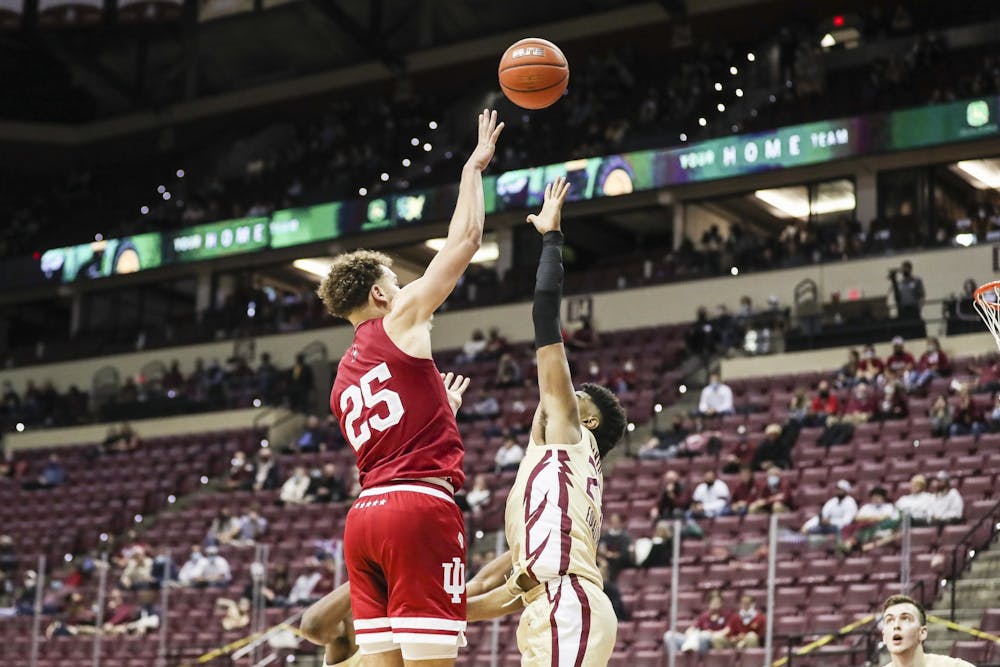As the ball sailed wide of the rim after the final buzzer sounded, sophomore forward Trayce Jackson-Davis fell to his knees in a combination of exhaustion and disappointment. After starting overtime with a bang, spinning through a double-team and converting the layup while getting fouled, IU’s offense appeared to regain some of the confidence it lost in the final minutes of regulation.
That confidence was short-lived as the Hoosiers wouldn’t make another shot in overtime, ultimately falling to No. 20 Florida State University 69-67. After Jackson-Davis’ 3-point play to open the overtime period, IU went on a 4:30 scoring drought, going 0 for 5 from the field over that stretch.
However, IU’s struggles offensively weren’t limited to overtime. Late in the second half, the Hoosiers went nearly five minutes without making a shot. The team shot 36.8% from the field and made just four 3-pointers.
Outside of Jackson-Davis’ 25 points, the rest of IU didn’t provide any spark offensively, with no other player scoring in double-digits or making more than three shots. In fact, nearly one-third of the Hoosiers’ points came from the free-throw line as they made 21 of 28 attempts — nine coming from Jackson-Davis.
While the offense struggled, it was the team’s rebounding that concerned IU head coach Archie Miller the most.
“I don’t feel good about rebounding,” Miller said. “For me and for our staff it’s our number one concern.”
While the two teams both finished the game 44 total rebounds, Florida State dominated the offensive glass the entire night. In the first half, the Seminoles grabbed 10 of their 19 rebounds on offense, leading to six second-chance points.
In overtime, IU’s inability to keep Florida State off the offensive boards was the difference-maker in the loss.
The Hoosiers managed to grab just one total rebound in the extra period while the Seminoles recorded five on the offensive end alone.
“It just comes down to rebounding the ball a lot of the time,” Miller said. “Our inability to get some scrappy ones and our inability to get some big ones, especially late, is just disappointing because it’s something that we can control.”
Jackson-Davis said Florida State’s size at the guard position caused a problem for rebounding since the forwards had to provide more help defense, leaving them exposed to offensive rebounds.
While IU tried to string together defensive stops during its offensive drought, the team’s inability to secure the loose ball and end Florida State’s possessions late in the game became too much to overcome.
With just over two minutes remaining in overtime, Florida State’s sophomore center Balsa Koprivica missed a layup over Jackson-Davis, tipping the ball back to himself. His second attempt had a similar result as he corralled the ball for the third time before finally finishing the play at the rim.
“A big part of this game were the long (rebounds) and the ones on the ground that you had to get,” Miller said. “They came up with probably at least five to seven at the end of the game and it’s hard to win the game if you can’t come up with those key stops when you get the stop.”




